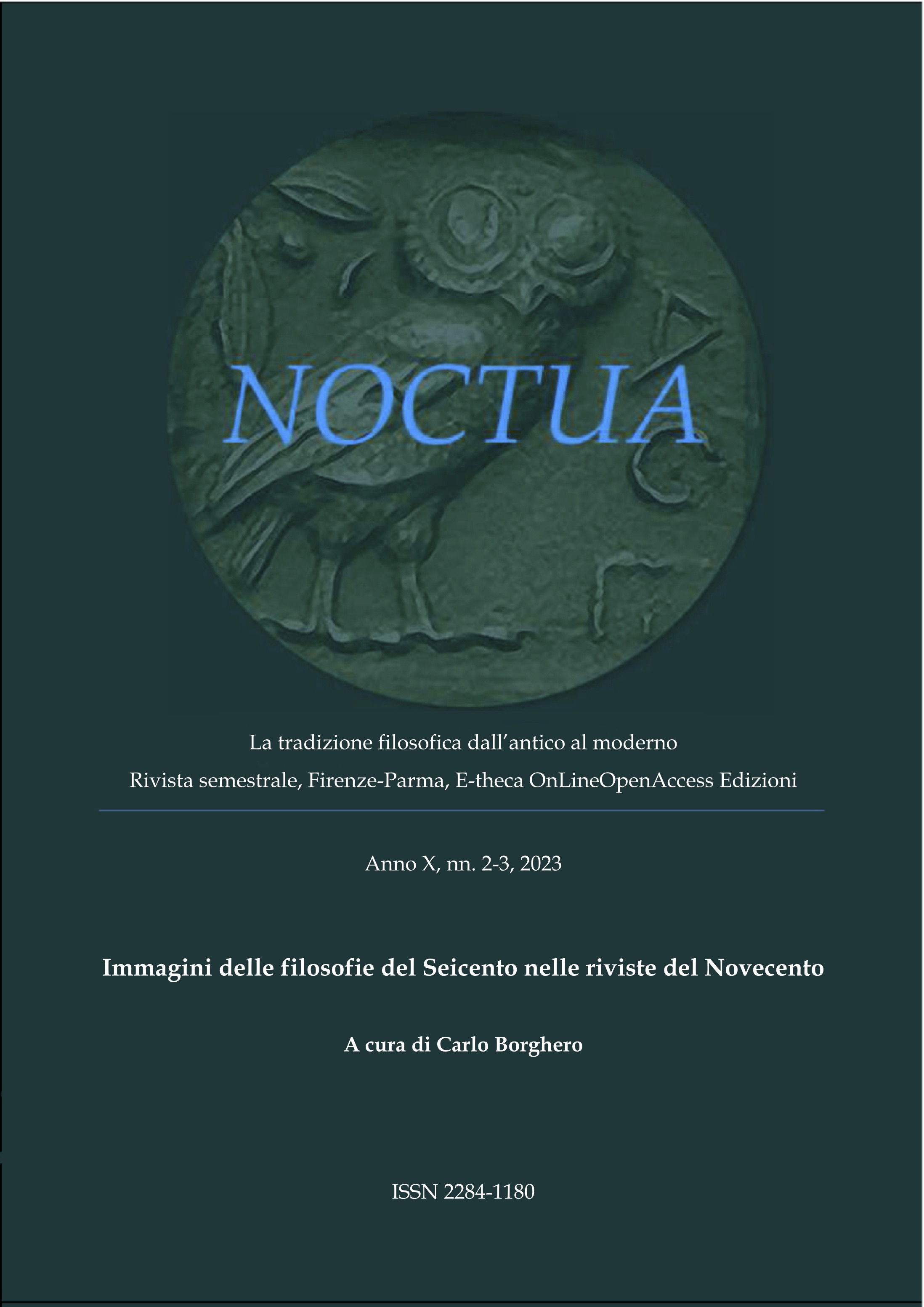Descartes, Spinoza e Leibniz nel Giornale critico della filosofia italiana (1920-1979)
DOI:
https://doi.org/10.14640/NoctuaX8Keywords:
Descartes, Spinoza, Leibniz, Italian Neo-idealism, Giovanni Gentile, Giornale critico della filosofia italianaAbstract
The attention paid in the Giornale critico della filosofia italiana to the major exponents of seventeenth-century philosophical rationalism, from its foundation by Giovanni Gentile in 1920 until 1979, reveals important changes that provide us with interesting information on Italian Neo-idealism. The small number of articles on Descartes can be interpreted as the result of an overall approach – sanctioned by Gentile – different from that of Hegel, who considered Descartes as the founder of modern philosophy. For Gentile, Descartes represents a stage in the history of philosophy spanning from Humanism to Spinoza, and, in a more particular Italian perspective, from Campanella to Vico. This interpretative scheme persisted also under the direction of Ugo Spirito, when Cartesianism continued to receive little theoretical and historical attention, with the exception of Eugenio Garin’s contributions. In the years from 1945 to 1979, the Giornale critico emphasized instead the interest for Spinoza, a very important author for Gentile, up to the double monographic issue published on the occasion of the third centenary of Spinoza’s death (1977). In turn, the lack of interest for Leibniz was constant and evident from the small number of articles published from 1920 to 1979, which were furthermore not particularly connected with the international, coeval Leibniz scholarship.
Downloads
Published
Issue
Section
License
Noctua pubblica contributi Diamond Open Access secondo i termini della licenza CC BY / Noctua publishes Diamond Open Access contributions under the terms of the CC BY license.






